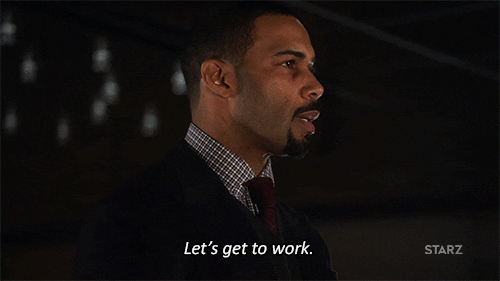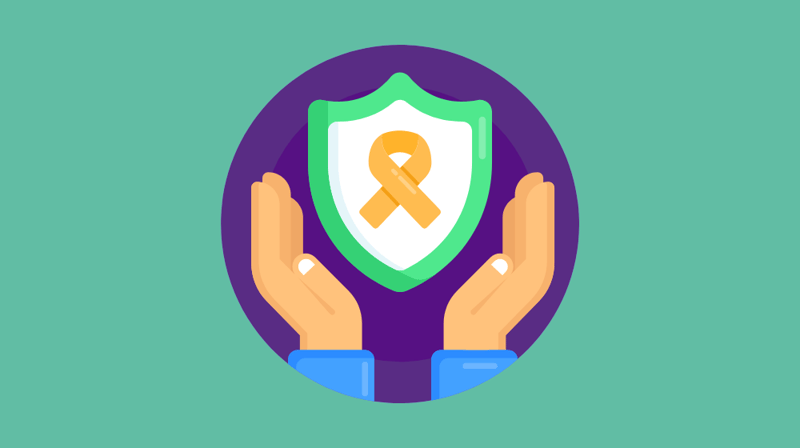Mental health counseling can seem mysterious, especially if you’ve never gone to therapy yourself.
You probably have a lot of questions: How does it work? Who takes the lead? How do you know when you’re done? What do you talk about?
The counseling process is worth understanding, because at some point, you may want to try it yourself or encourage students to give it a try.
Sometimes we get so used to stress and dysfunction in our lives that we convince ourselves that everything is fine, even though (narrator’s voice:) everything is not fine.

You might even believe some of the myths about counseling, which is keeping you from pursuing it.
I’ve written this post to help. First, I’ll cover six myths about the counseling process. Then, I’ll offer tips on how to be a liaison between counseling services and students as a champion for mental health care.
Let’s dive in!
Myths
Myth #1: “Counseling is only for when things get really, really bad.”
You don’t need to be in crisis, dealing with a major trauma, or living with a mental illness to seek and benefit from therapy. Counseling isn’t in a glass box, as a “break in case of emergency” tool.
After all, we consider it smart to head to the doctor at early signs of the flu instead of waiting until it gets really bad.
There is a range of concerns for which people seek counseling. Examples include relationship issues (with parents, roommates, friends, romantic partners, and more), making a difficult decision, facing stressful problems, or dealing with milestone life events, such as divorce or a loved one’s death. (Even positive changes — like moving across the country and starting a new job — can bring overwhelming challenges.)
Student affairs professionals may also benefit from counseling to cope with career burnout, job stress, work/life balance challenges, job search fatigue, and compassion fatigue. (Drexel University provides a great list of common reasons for students to seek counseling here.)
Counseling can help you face both chronic and acute stressors. A chronic stressor may be an on-going toxic work environment, as well as a mental illness like anxiety or depression (including mild and moderate forms, not just severe cases.)
An example of an acute stressor is a move to a new city for a job. It could also be making a decision about ending a relationship or processing news about a health diagnosis.
Counseling is a smart, proactive move for self-growth. It can help you learn more about yourself, including the thoughts, feelings, and behaviors that may be holding you back.
Counseling is also an excellent opportunity to work on interpersonal skills. The right counselor can help you improve your communication skills, set boundaries, manage your anger, and more.
Given that we all face (or will face) challenges, therapy is something we all could benefit from at some point in our lives.
What are some signs it’s the right time for you to seek therapy? Check out what the American Psychological Association (APA) says about that here.
Myth #2: “Therapy involves someone constantly asking ‘How does that make you feel?'”
Counseling isn’t lying on a couch talking about your childhood while your therapist takes notes. Well, not always; it can sometimes be like that… if that’s what you truly need.
But if you’re looking for something more focused and actionable, there are other great options.
Did you know that, much like aspiring student affairs professionals in grad school, counselors learn different theories and approaches in their training?
Solution-focused therapy, for example, is brief, encouraging the counselor and their patient to stay in the present and focus on solutions.
Cognitive-Behavioral Therapy (CBT) may also fit you well if you’re seeking a structured format that involves homework and problem-solving.

You may find other approaches surprisingly beneficial as well, such as humanistic or psychoanalytic theories. Powerful aspects of these approaches include unconditional positive regard and internal reflection work. Connecting the dots between the past and present can illuminate desired changes for the future, as can understanding family structures and relationship dynamics.
Don’t get intimidated or bogged down by the details, though. More than theories, counseling is about building trust and finding a fit with a therapist. Yes, you may get asked, “How do you feel about that?” here and there, but counseling is so much more than that.
Myth #3: “Men shouldn’t go to therapy.”
This narrative has changed significantly in the last decade, but there is still work to be done.
There are pervasive stereotypes about how men shouldn’t “get emotional.” People don’t realize that seeking counseling is a sign of strength.
One possible solution? Make therapy more accessible to men in a way that works for them.
In my previous post, “5 Ways Your Campus Can Support Men’s Mental Health,” I looked at efforts from celebrities like Ryan Reynolds, Kevin Love, and Prince Harry who are opening up conversations about mental health among men. And now, entire sports associations are even getting involved, too. The NBA, for example, has these mental health initiatives.
While approaches like solution-focused or CBT therapy can feel like a good fit for some men, it can also be helpful for men to learn how to take a break from the “fix it” mode.
In writing for Psychology Today, licensed therapist John Kim shares that he believes all men need therapy because, among other reasons, “it’s the only way a lot of men ever learn to stop trying to fix everything.”
Kim says that men may feel pressured to do everything on their own or fix others’ problems. Therapy can decrease such patient’s focus on controlling things around them and help them better understand themself.
Additionally, in “Why Every Man Should See a Therapist”, David McGylnn touches on how therapy can help men cope with job stressors and challenges in their sex lives. He also asked experts how men can know if they need therapy. Their answers included if they feel “stuck” or if what they’re dealing with is impacting their quality of life or ability to function.
Myth #4: “A counselor will just tell you everything that’s wrong with you.”
A counselor’s role in therapy is to actively listen to what you share. This includes reflecting back your statements to check for accuracy or to understand your feelings. They might ask astute questions, help you explore ideas you hadn’t considered, or offer fresh insights to change up your perspective.

It’s true; a counselor may point out opportunities for growth, but it’s more about creating an “aha” moment for growth rather than a “bad dog” moment of shame. This viral tweet asking “the best thing you learned at therapy” has some great responses that demonstrate the power of “aha” moments in therapy.
In many ways, counseling is client-led. If you’re new to counseling or aren’t sure where to start, you and your counselor can collaborate to determine what will be most helpful. This article also has some great advice on how to get started.
Together, you and your therapist can set goals that you’ll spend your sessions working toward. If a new concern or challenge develops, you may adapt your goals or spend a session or two navigating the new issue.
Typically though, the counselor’s main role is to listen, not talk. While it’s true that growth can be uncomfortable, the positive support in counseling makes it easier to keep growing. (Sound familiar? It’s much like the positive approach student affairs professionals take when working with students!) The focus is on discovering your strengths and how these can help you overcome the challenges you are facing.
Myth #5: “Talking isn’t going to fix anything.”
Some people don’t put stock in counseling because their mantra is “less talk, more action.” They might even imagine that counseling will slow them down in reaching their goals. They rely on willpower or go “cold turkey” in changing their behaviors, expecting smooth sailing — which usually doesn’t happen.
But the idea that counseling isn’t action-oriented is a myth — one that prevents a lot of people from experiencing the benefits of therapy.
Talk therapy can support positive change. As this article in Everyday Health summarizes, therapy can lessen clients’ back pain, help them get restful sleep, temper their depression, and lead to improved heart health.
Yes, counseling can help you physically! The mind-body connection is real (and evidence-based). It may even help you find and apply wellness practices to improve temporary challenges or your overall quality of life.
As far as “fixing” things, it’s hard to imagine a situation that can’t be improved by having the time and space to focus on growth while feeling challenged and supported by a trained professional.
Think you have to be 100% ready for change in order to benefit from counseling? Think again. There are six stages of change, and counselors work with them all. No matter what stage you are in, counseling can help you make progress towards sustainable change. Remember, it’s not just about talking; it’s also about learning.
There is a cumulative effect as well. As Alice G. Walter explains for Forbes, therapy can help you rewire your brain, deal with curveballs, lessen substance abuse (as self-medication), and prevent you from repressing emotions.
Student affairs work is focused on giving to students our time, attention, and care, so it’s critical that we attend to our own needs, too. Problems that silently exacerbate over time or that we leave at the bottom of our to-do lists can make it difficult to live quality lives and serve students well. Therapy can help.
Myth #6: “I don’t need therapy; I have my friends.”
Friends can be fantastic sources of support for good mental health. They prevent us from being lonely, keep us laughing, and care about our happiness. Time spent with friends can be a good break from life’s demands, and a close friend could be your top go-to option whenever you need someone to listen or give you advice.
However, even if you have great friends, you can still benefit from therapy. First, there are some problems your friends may not have the capacity or ability to help you with, beyond letting you vent (and there’s only so far that can take you). Therapists, though, are clinically trained to help you find solutions that work for you, all while remaining objective and non-judgemental.
Given their outsiders’ perspective, counselors can provide different insights from your friends. And in addition to being able to offer helpful suggestions, therapists know how to help you work towards goals. They’re also trained to recognize signs that things are getting worse, and they know how to help.
Plus, probably unlike your friends, therapists have studied human behavior at a master’s or doctoral level and often operate from a theoretical framework. They may also specialize in areas like substance abuse, anxiety, or obsessive-compulsive disorders.

Wrong, Carrie.
While friendships are wonderful two-way streets, counseling is designed to be a one-way street in the best way: The focus is entirely on you, the client. Therapy is also confidential and sets clear boundaries.
You don’t have to worry about your counselor’s feelings, listen to their problems, or be there for them emotionally. A counselor isn’t going to cut off your story to tell you about their day, nor will they be distracted by their phone.
The opportunity to focus on yourself can be a relief, especially if you work in a helping profession like student affairs.
Counselors may also notice things that your friends might miss. They listen for the nuances of your stories and behaviors. They notice what’s not being said, help you connect the dots over time, and seek to understand the heart of the situation.
Tips
Now that you’ve learned about the counseling process, let’s dive into how you can be a bridge between counseling services and students.
1. Model seeking help
Whether or not you are engaged in counseling yourself, you can model positive behavior when it comes to seeking help.
For example, you can admit when you don’t know something and ask for guidance from colleagues in front of your students.

Be sure to also tell students about a personal or professional time when you had to ask for help. Recognize students for asking questions and seeking guidance; let them know you are pleased to see them practicing this skill, as it will be critical to their personal and professional success.
2. Watch your language
Be mindful of language that could deter a student from seeking help. Students watch our behavior more than we realize; they want to be inspired by us and feel safe around us.
Saying things like “this weather is bipolar” or “she’s psycho” minimizes and stigmatizes mental health experiences that our students may be facing. Jokingly claiming to be having a panic attack or being depressed — when you are not — is also best to avoid.
In addition to what not to say, you should train yourself to know what to say. A great starting point? Inclusive language! If you need help improving in this area, check out this awesome inclusive language guide. Pay special attention to the “ability” section, as it’s perhaps most relevant to mental illness and care.
3. Know how counseling works on your campus
Faculty and staff should be comfortable acting as referral agents to campus services, including the counseling center. To do this well, it’s helpful to know more than just the department’s location and hours.
Even the basic perusal of your campus counseling center’s FAQs can make you informed (and give you an idea of what questions students might ask). Understanding how students make an appointment, what kinds of counseling groups are offered (if any), and if your campus utilizes session limits or waitlists can make you an ally to students who are considering counseling.
Being familiar with counseling staff is also key. Students may have unspoken concerns about whether or not a counselor will share in or understand their intersectional identities.
It can be helpful to ask a student, “Are there any concerns about going to the counseling center I can answer?” If you’re familiar with counseling services, you’ll be able to answer this question at a base level and offer to find out more information for the student.
Does your counseling center offer consultation appointments, psychiatry services, or specialized testing? You don’t have to know all the details of these areas to be helpful; even just a “yes, they do that” or “no, they don’t offer that” can orient students to their options.
In addition to knowing how counseling works on your campus, you should promote it! Weave in information about counseling services into your department trainings, your conversations with colleagues and students, and the department resources you create.
4. Support counseling outreach or invite counseling staff to collaborate
You can also support your campus counseling center by being familiar with their resources for faculty and staff, promoting their student services, and attending outreach workshops they offer.
Since therapists spend the majority of their workdays with patients, their outreach efforts might not be as frequent as other campus partners. As a result, it can be hard for them to land an audience. Attending these events and bringing colleagues and students with you goes a long way to support their work.
In addition to going out to attend their events, find ways to collaborate with your counseling center and invite them in. Invite them to present a workshop to your staff, such as one about identifying and referring students in distress.

See if they are interested in serving on a committee you lead. Their perspective and contributions can be an outstanding addition to efforts taking place on campus. It also makes them part of the campus community and helps make them more familiar to students and staff.
Lastly, simply ask counseling staff how you can support their work or invite a counselor to lunch to get to know them. These gestures can mean a lot to staff who are attending to the most personal and critical needs of our students.
Looking for more tips and ideas to help students? Check out our related posts on loneliness, resilience, and mindfulness, as well as this list of six things every college student should know about therapy. NASPA also offers strategies for addressing mental health support on campus.
What do you think is important to know about the counseling process? What questions do you still have about it? Tweet us at @themoderncampus or @priyathomas757.





